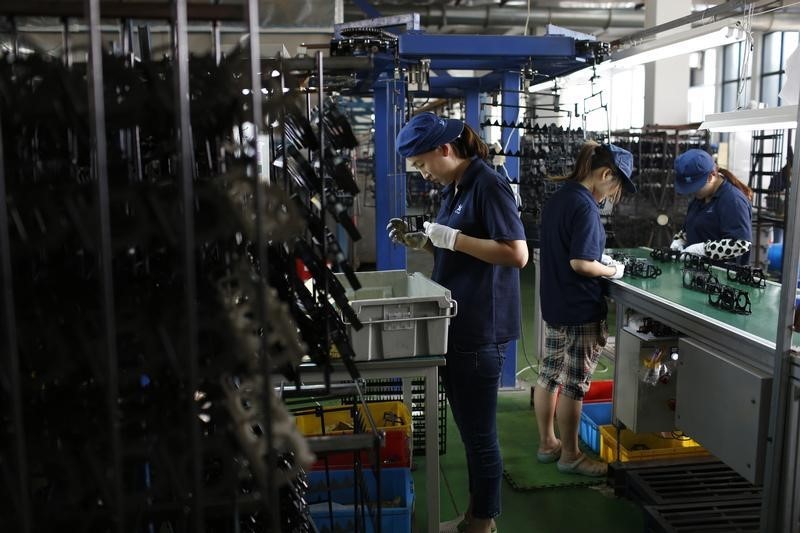By Tetsushi Kajimoto and Leika Kihara
TOKYO (Reuters) - Japan's core inflation slowed for a fifth month in December and is seen pressured further by collapsing oil, putting more distance to the central bank's 2 percent price target even as other data point to a steady recovery for the recession-hit economy.
The Bank of Japan will be encouraged by data showing a rise in factory output thanks to a much-awaited rebound in exports, while household spending showed signs of bottoming out.
The big question for policymakers is whether Japan can skirt the faltering economies in Asia and Europe without having to ease for a third time in as many years, which some fear could trigger a damaging decline in an already weakened yen.
"The downward pressure from crude oil falls on Japan's inflation is far bigger than the boost from higher import costs from a weak yen," said Yoshiki Shinke, chief economist at Dai-ichi Life Research Institute, who is expecting a further slowing in core inflation over coming months.
The price data on Friday appeared to back Shinke's views.
Excluding the effect of a sales tax hike in April last year, core consumer price index (CPI) - which excludes volatile fresh food but includes oil products - stood at 0.5 percent, just a quarter of the way in achieving the BOJ's 2 percent target.
Core consumer prices rose just 1.1 percent last year when stripping away the tax-hike effect.
Still, the BOJ hopes to hold off on easing and look through the pressure on prices from lower oil costs, an approach that found backing from premier Shinzo Abe's advisers who once pressured the bank to take bolder steps to beat deflation.
For one, the BOJ can afford to take a cautious approach on policy given the brighter outlook for the United States, Japan's major export market.
The pick-up in output also backs up the BOJ's argument that a solid economic recovery will help accelerate inflation toward its ambitious target early next year, although oil price falls will continue to weigh on inflation in the short run.
"Consumption and production will likely keep recovering this year as the impact of last April's sales tax hike fades. Cheap oil prices also help boost consumers' purchasing power," said Taro Saito, an economist at NLI Research Institute.
Factory output rose 1.0 percent in December, boosted by brisk shipments of smart-phone parts to Asia and solid domestic car sales.
Manufacturers surveyed in the data expect output to rise 6.3 percent in January, prompting the government to raise its assessment to say production is "picking up moderately."
The job market continued to improve with the unemployment rate falling to 3.4 percent in December, the lowest level since 1997, and job availability hitting a two-decade high.
Household spending rose 0.4 percent from November in a sign spending was picking up, albeit gradually.

Japan's economy slipped into recession in the third quarter of last year as exports failed to pick up and last April's sales tax hike cooled consumer spending. Analysts expect the economy to have expanded an annualised 3.2 percent in October-December as the tax-hike pain subsides, a Reuters poll showed.